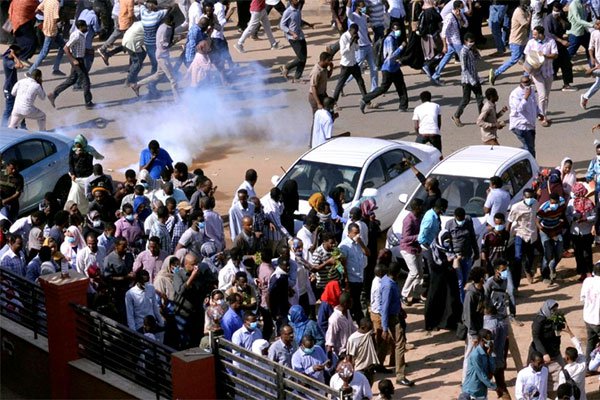Sudan’s President Omar al-Bashir on Monday announced a ban on street protests days after declaring a national state of emergency.
Pressure is mounting on Mr. Bashir to exit power but he has remained resolute refusing to give in.
President Bashir says all unlicensed public gatherings have been banned. He also gave police new powers to enforce other emergency decrees.
The Sudanese leader last week declared a state of emergency hoping that it will disrupt the sustained protests.
But that was ignored with fresh protests held in various parts of the capital Khartoum.
The security forces used tear gas to disperse hundreds of students who were demonstrating inside the campus of the Sudan’s oldest women’s university.
Monday ban on protests is seen as a response to the campus based demonstration.
More bans
President Bashir also banned the trading or hoarding of fuel products as well as subsidised goods.
There are also jail terms for people travelling outside the country carrying more than $3,000 in currency or 150 grammes of gold.
Bashir has always vowed to continue as President, saying he would not be stampeded into leaving office by protests.

He has also said that “There’s only one road to power and that is through the ballot box. The Sudanese people will decide in 2020 who will govern them.”
He already has plans to run for the presidency for the third time in elections to be held in 2020.
How the protests started?
The protests were triggered after bread prices increased from one Sudanese pound ($0.02) to three Sudanese pounds ($0.063).
Bread prices in Sudan are said to be astronomically higher as a result of the country’s economic challenges.
The prices of bread have more than tripled since the start of last year. It was caused by the government decision to stop importing wheat from overseas.
Bashir came to power in 1989 when he led a group of officers in a military coup that ousted a democratically elected government.
Source: Africafeeds.com



